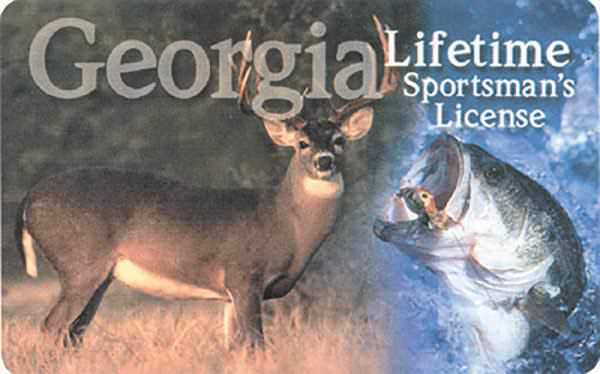

SOCIAL CIRCLE, Ga. –-(Ammoland.com)- Outdoors enthusiast on your holiday gift list?
Before heading to the stores, the Georgia Department of Natural Resources’ Wildlife Resources Division wants you to know about a gift that is sure to please all hunters and anglers.
Added bonus – this gift benefits the wildlife and wild places they enjoy.
A lifetime license or annual hunting or fishing license gives access to the great outdoors, and provides support for Georgia wildlife and state-managed lands.
Lifetime Licenses
With a lifetime license, the Georgia resident hunter or angler on your gift list will not need to pay for another state hunting or fishing license. Ever! From hunting trophy whitetails to casting for lunker largemouths, their cherished recreation in Georgia is covered.
Prices are set by age group:
- The best bargain is for children (resident OR non-resident): $200 for under 2 years old.
- Kids (resident) age 2-15 – only $350. A lifetime license can even be purchased for a non-resident child age 2-15 for $1,000.
- Ages 16 to 59 (resident) is $500.
- Discount lifetime licenses for resident adults age 60 to 64 are $95.
- Residents 65 and older can receive a free lifetime license, with an option to pay a one-time fee of $10 for a durable, commemorative plastic card.
- Veteran lifetime license is $400.
Applications and document details are at www.georgiawildlife.com/LifetimeLicense.
Can’t purchase a lifetime license? How about purchasing an annual or 2-year license for that hunter or angler? This purchase provides your sportsman or woman access to the Georgia outdoors, and even if they already have a current license, the license you purchase will “stack” onto their existing one to let them continue to pursue the sport they love.
Gifts That Keeps On Giving …
The Wildlife Resources Division uses hunting and fishing license sales to fulfill its wildlife mission. The sale of licenses are also a key measure through which states receive Wildlife and Sport Fish Restoration funding.
Since 1937, the federal Wildlife and Sport Fish Restoration Program (https://wsfrprograms.fws.gov/) has channeled dedicated excise taxes on sporting equipment – more than $14 billion nationwide through 2011 – to states to manage fish and wildlife and provide recreational opportunities. Uses in Georgia vary from funding public fishing areas to managing the state’s 1 million-strong deer herd.
But it’s worth noting that Georgia receives federal funds only for paid licenses. Avid hunters and anglers who buy a discount lifetime license ($95) at age 60, rather than waiting for a free lifetime license at age 65, ensure their excise taxes are returned to Georgia for the rest of their life! (Those 65 and older can also support wildlife by buying a discount lifetime license instead of asking for the free senior license).
Overall, wildlife recreation also supports the economy, with participants spending $144.7 billion nationwide – equal to 1 percent of the gross domestic product – and with an economic impact of about $5.6 billion in Georgia.
This holiday season, skip the wrapping paper and give the wildlife enthusiast on your list a “license” to keep enjoying the activities they love.
About Georgia Department of Natural Resources:
The Georgia Department of Natural Resources strives to better today’s natural, historical, cultural, environmental and economic resources to provide for more abundant use and a brighter future for the state of Georgia through the management and conservation of Georgia’s natural and cultural resources. This work is conducted by DNR’s six operating divisions which include: Coastal Resources Division; Environmental Protection Division; Historic Preservation Division; Law Enforcement Division; Parks, Recreation & Historic Sites Division and Wildlife Resources Division.
For more information, please visit www.GADNR.org.
